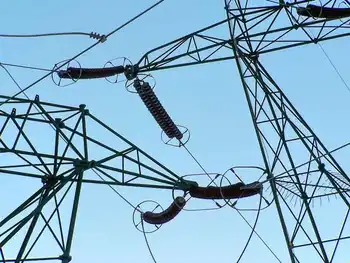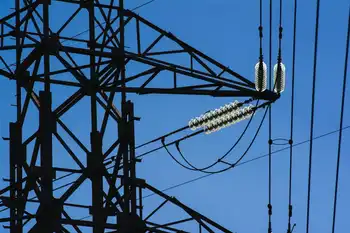'Demand fee' may seem unfair, but it's PUC-approved
By Knight Ridder Tribune
Arc Flash Training CSA Z462 - Electrical Safety Essentials
Our customized live online or in‑person group training can be delivered to your staff at your location.

- Live Online
- 6 hours Instructor-led
- Group Training Available
She checked the bills of neighboring businesses; none received a similar charge. She called TXU to complain.
"I was sure it was a mistake and that they would correct our bill and give us a refund for the months we had already paid this fee," she said. No dice, TXU said.
She contacted The Watchdog to ask: "Have you ever heard of this demand fee before? Can you help us?"
Here what's happening: Without much publicity, TXU began charging some business customers this demand fee in November. TXU says that inserts included in bills explained the charge. Telephone calls were made to some customers, and other explanatory literature was distributed.
But still, after the changes, some customers did not understand. So what's a demand fee?
It's a charge intended to recover the delivery cost that the electrical retailer - in this case, TXU - pays to a company that distributes electricity - in this case, Oncor Electric Delivery. For residential customers and some businesses, the cost of distribution is covered by the normal kilowatt-per-hour charge.
But TXU applies a demand fee to nonresidential customers that use - or "demand" - more than 10 kilowatts a month. Actually, TXU could have passed this fee on to customers years ago after the Texas Public Utility Commission gave approval.
Other electricity providers - such as Direct, Stream and Reliant - already pass it on. But TXU didn't until recently.
"We have been underrecovering the cost of delivery of the electricity for certain customers," a TXU spokesman said.
TXU undercharging its customers? Who knew? Why did TXU change its billing?
"It's a business decision," the TXU spokesman told me. Pressed further, the spokesman gave another word to describe the company's change of heart: "Profit."
TXU's demand fee is $5.90, lower than the previous charge of $7.78 per kilowatt for commercial users. But the charge applies to the entire bill - not just the amount over 10 kilowatts.
Previously, the customers didn't pay for the delivery of the first 0 kilowatts. And on top of the demand fee is a customer charge. For businesses using less than 10 kilowatts at any time in a year, the charge is $12.50 a month.
Businesses such as the Kolton law firm that use more than 10 kilowatts at any time pay $43.
The worst part? Under the PUC-approved Oncor tariff, if a business uses more than 10 kilowatts at any one time, the business has to go an entire year paying these fees, even if the business lowers its electricity demand in the months that follow. Ouch. When did Kolton's office go over the 10-kilowatt mark? Way back in February 2007.
Before the billing change went into effect, the Koltons' September bill was $107, but Oncor charged TXU $109 to deliver the electricity.
"So we underrecovered there" by $2, the TXU spokesman says.
Her October bill was $96, but Oncor's bill to TXU for the delivery was $109. Another $10 loss for TXU, TXU says.
After the change, Kolton's November bill was $206, but Oncor charged TXU only $118.
"That's the first time we saw a positive on this customer's account," the TXU spokesman says. (Watchdog note: "Positive" is TXU-speak for profit.)
Arlington Councilwoman Sheri Capehart, who represents the Koltons, criticizes the demand fee, saying: "I just think it puts the business community in an untenable position.... Can you imagine what this is going to do to the business community? Those costs at some point will be passed on to customers."
A TXU representative visited the Kolton law office to talk about ways to conserve, including a possible energy audit. Kolton also talked to TXU about switching to one of its other business plans. The demand fee will still apply, but electricity might cost less if the law office can reduce its demand. Unfortunately the refund that Kolton wants is not in the cards.
"We're not wasteful," a frustrated Kolton says. But TXU says that is not what determines kilowatt usage.
The best way to improve is to slow down the amount of power being used at any one time by reducing heating, appliance and lighting costs. How? Use more energy-efficient equipment and switch from incandescent light bulbs to fluorescent ones.
Business customers should call their electricity providers and ask about alternate rate plans.
Capehart adds, "I wonder how many other businesses have never even noticed that fee on their bill.











